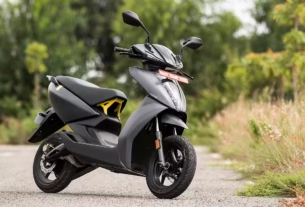In Short : In August 2025, India registered 1,86,823 EVs, a minor decrease from 1,90,033 in July. Sales of e-four-wheelers increased to 17,387 units, while sales of e-two-wheelers barely increased to 1,04,373 units. However, there was a decrease in passenger e-three-wheelers and e-rickshaws.
Encouraging Innovation and Strategic Growth
Particularly for e-four-wheelers and e-two-wheelers, this subtle trend underscores the increasing demand for solar panels, solar light systems, and solar energy-powered charging infrastructure. When combined with clever solar system designs, these developments can boost productivity and hasten the transition from non-renewable to clean, sustainable energy.
Maintaining Equity While Developing Technological Capabilities
India is guaranteeing fair access to clean mobility solutions for a variety of vehicle segments by growing its EV infrastructure with the help of renewable energy. By incorporating solar systems into charging networks, barriers for underserved areas are lowered, sustainable development is supported, and technological advancement is encouraged.
Impact and Significance of Clean Energy
The increase in EV sales, particularly in markets like e-four-wheelers, highlights the growing convergence of solar energy adoption and cleaner transportation. As markets react to clean energy’s growing presence, this momentum may rekindle investor interest in the renewable sector and impact trends in the share prices of Solar Industries and SW Solar.
Concerning the EV Market in India (August 2025)
Dynamic changes in EV adoption are still occurring in India: e-rickshaw and passenger e-three-wheeler sales are under pressure, while the e-two-wheeler and e-four-wheeler sectors are expanding. Long-term, sustainable energy transitions will depend on the integration of smart EV infrastructure with renewable resources as the market develops.




